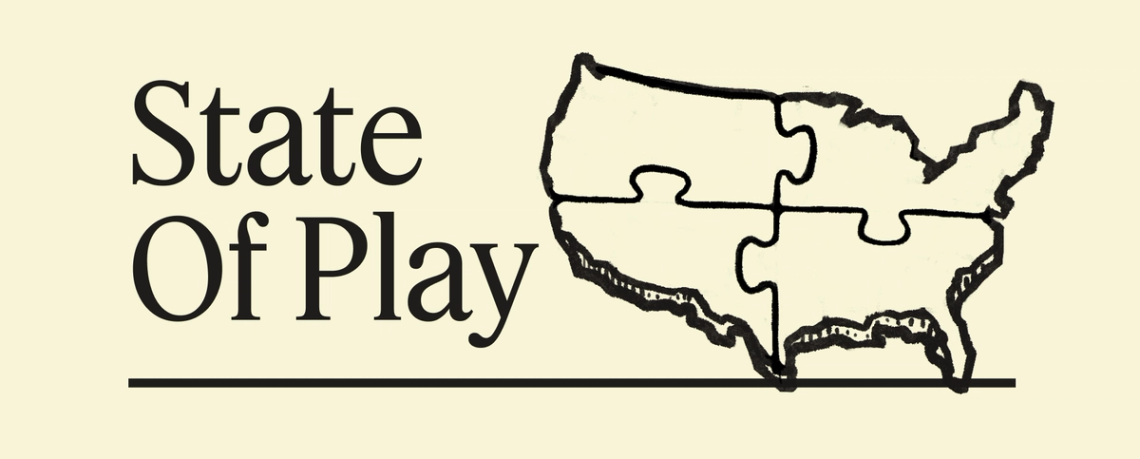 Reuters/Sarah Silbiger Reuters/Sarah SilbigerTHE SCENE NATIONAL HARBOR, Md. — Roy Liu had not come to CPAC to hear Alabama Sen. Tommy Tuberville accuse leftists of wanting “one gender,” or to buy a “Biden-Fetterman 2024: It’s a No-Brainer” T-shirt. He, and dozens of other activists with the New Federal State of China, wanted to build support for destroying the Chinese Communist Party. “The U.S. needs to decouple from the CCP, and needs to stop supporting it on all fronts,” said Liu, who had been conducting on-camera interviews with people stopping at the NFSC booth. “Then the Chinese people can rise up and take down the firewall and learn the truth. And then, they can take down the CCP.” DAVID’S VIEW Challenging China is the great bipartisan cause in Washington these days. On Capitol Hill, it has united lawmakers behind ambitious science and tech legislation and spurred the creation of a House select committee focused entirely on threats posed by Beijing that leaders in both parties have endorsed. Democrats and Republicans alike joined the week-long uproar about China’s spy balloon last month. But if the mood at CPAC is any indication, the danger of the CCP has become an all-consuming issue for the conservative base in a way it simply has not for Democrats. Nearly every topic discussed in the conference’s first day had a China angle — a change from just one year ago, when a poll of CPAC attendees found that they considered President Biden, not Beijing, the biggest threat to America. This weekend’s CPAC is the first to be held at the Gaylord National Resort, down the road from Washington, since 2020. That year’s was the last large political gathering before the COVID pandemic, commemorated in “Borat Subsequent Moviefilm.” This year’s began right after the Energy Department and FBI Director Christopher Wray suggested that the virus may have spread after a lab leak in China. Conservatives who’d questioned early media coverage, dismissive of the “lab leak theory,” felt validated. Yet another threat from Xi Jinping’s China — stealing jobs, producing fentanyl, suppressing human freedom, and then a pandemic. “It’s becoming a domestic issue,” said Brett O’Donnell, a Republican strategist who works with ex-Secretary of State Mike Pompeo and Arkansas Sen. Tom Cotton. “They’re in the sky. They’re buying our land. They’re in your kid’s phone.” Pompeo, who’ll address the conference today, planned to contrast his hard line against China with Donald Trump’s initial reluctance to criticize its handling of the COVID outbreak. “It was wrong to praise the Chinese Communist Party for how they handled the virus,” Pompeo will say, according to an excerpt shared with Semafor. “I have always been clear that Communist China gave us COVID and they lied to cover it up.” Some of the heated rhetoric from politicians at the conference wouldn’t have been that out of the ordinary on Capitol Hill. Tennessee Sen. Bill Hagerty accused the CCP of “violating our sovereignty every single day when they kill our youth, here in America,” while discussing smuggled fentanyl. “If your child or grandchild is on TikTok, you get them off of TikTok tonight!” said Tennessee Sen. Marsha Blackburn. “Tonight! Because the Chinese Communist Party is building a virtual view of your child online. They’ve got their face, they’ve got their keystrokes, they’ve got their search history. And they are using artificial intelligence and machine learning to drive your child where they want that child to go.” KNOW MORE But at CPAC, those kinds of familiar riffs were supplemented by media and lobbying groups that support regime change in Beijing, and have never been more visible. The Epoch Times, a newspaper associated with the Falun Gong religious movement suppressed by Xi’s government, had a sprawling presence at the conference, including the screening of “The Shadow State,” billed as “the first documentary about ESG” — another target of conservatives, both at CPAC and on the Hill. And the New Federal State of China, “declared” three years ago by Steve Bannon and exiled Chinese businessman Guo Wengui, made its first CPAC appearance with a $75,000 sponsorship, and two high-tech booths where volunteers handed out leaflets and explained why the battle to destroy the CCP had to be won in America. That isn’t hyperbole. “The elimination of the Chinese Communist Party is essential in breaking the shackles of slavery imposed on the Chinese people,” Bannon said at the 2020 ceremony launching the NFSC, “and also, in bringing about peace to the international community and all mankind.” Guo, citing “Chinese culture,” pricked his finger and signed the declaration with his blood. The Bannon-Wengui partnership burst into the headlines before the 2020 election, when Bannon was arrested on Guo’s yacht on charges that were later superseded by a pardon from President Trump. Guo declared bankruptcy last year, claiming that his wealth had dwindled to less than $100,000. But their flashy CPAC presentation, including some advocates who described fleeing China after the 1989 massacre at Tiananmen Square, found a receptive audience, and rhymed with what was happening on the main stage. “In Michigan, we have a CCP presence,” Michigan Republican Party chair Kristina Karamo told one NFSC interviewer. “We have an ESG compliance officer implementing Agenda 2030 in our county. We have UN logos on our county documents.” The Republicans shuttling between National Harbor and the Hill might not go that far. But they were speaking to a base that saw China’s hand in everything from COVID-era school closures to TikTok-driven mental illness — and, as several legislators said, literally saw China’s spying eye when they looked skyward. | 




